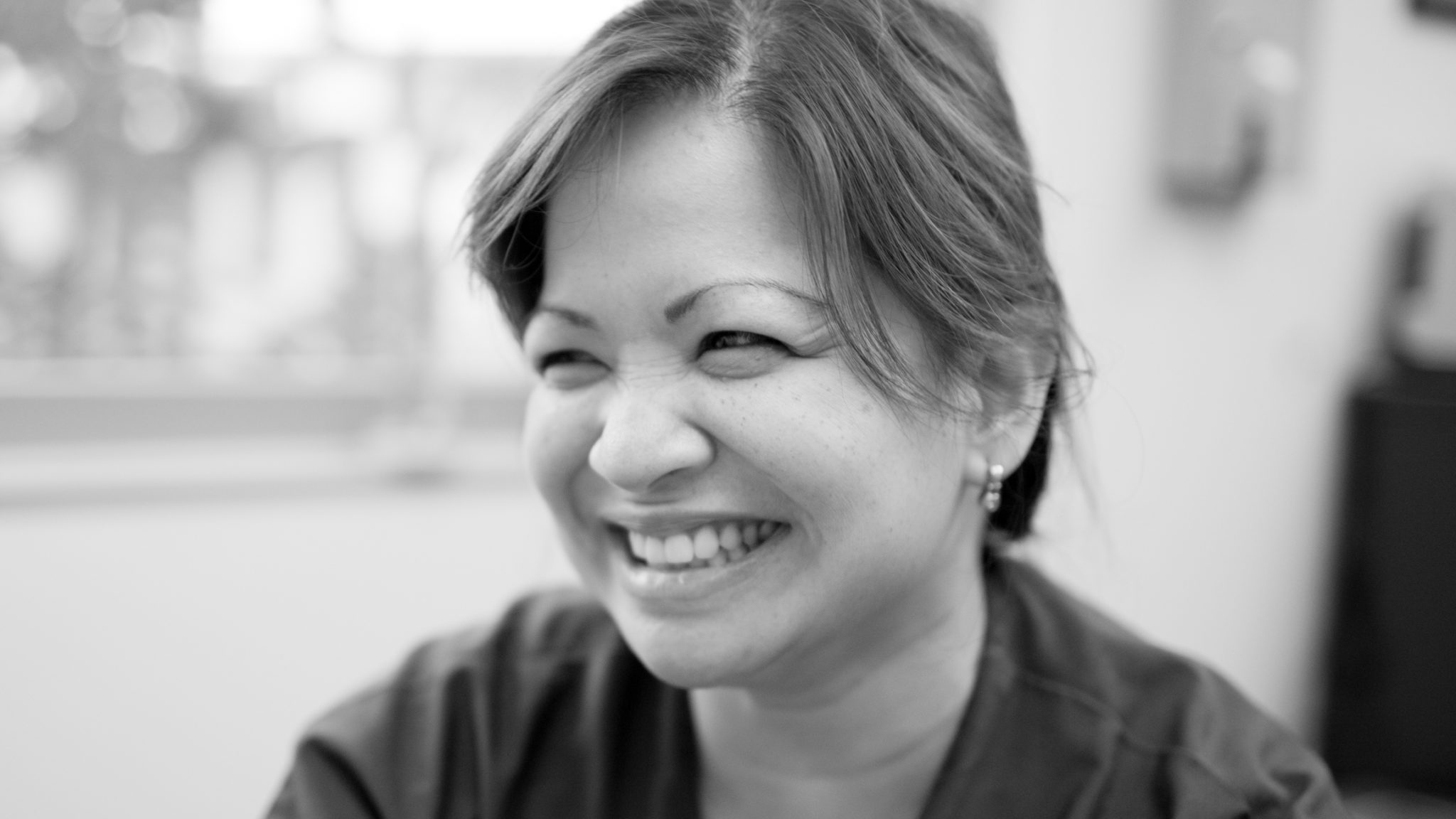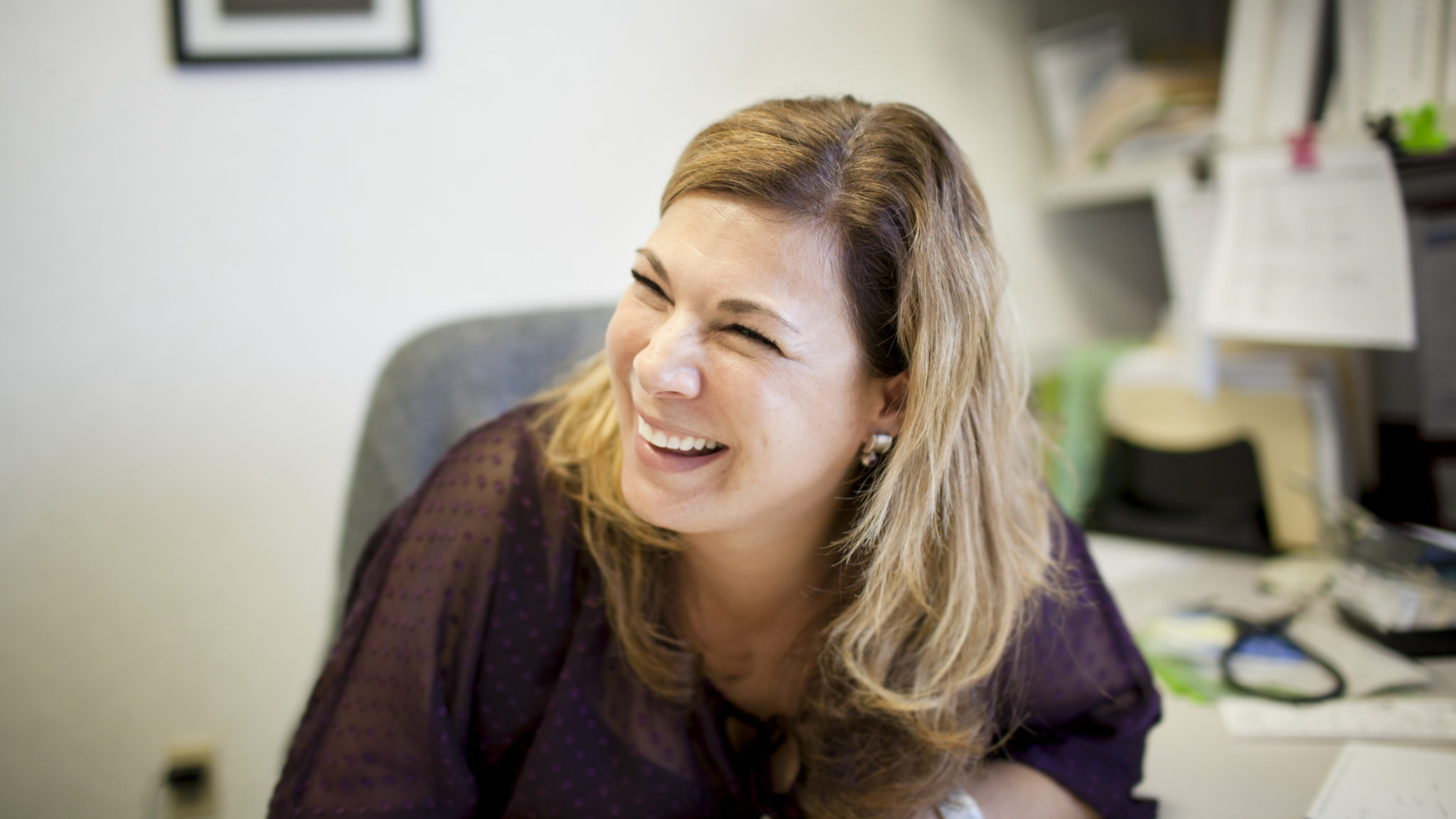By Brianna Guillory
@bloatednani
Each person experiences a series of moments in his or her life. In that series of moments, a mixed array of emotions are imposed. And at times these emotions can often become overwhelming or too hard to bear when someone is alone.
Although the sense of being overwhelmed may some- times make a person’s path become unclear and hazy, the smallest nudge of support will often push a person in the right direction. By letting that nudge be a guide, new opportunities will arise, and the collection of more sup- port will eventually clear the once foggy way. However, it is up to that individual’s motivation to compel him or her to complete the journey.
Such was the case for Las Positas alumnus Sandi Clark-Johnson, who graduated in the spring of 2014 with an Associate of Arts in Biology. She is currently awaiting the results of her wait-list status for the nursing program at Ohlone College.
Although her story presents itself as the typical com- munity college happy ending, Clark-Johnson’s 20-plus- year uphill battle with overcoming mental illness and reconciling with the fact of her two attempted suicides, makes the struggle of her journey mean much more to her than just a college degree.
“I would say that she is someone that never gave up. She just pushed through. She’s a good example of using all of the resources. Taking advantage of everything and anything to make it through,” said Jill Oliveira, coun- selor for the Extended Opportunity Programs & Services (EOPS).
With her determination to overcome her obstacles, Clark-Johnson attributes a lot of her success to the amount of support both emotionally and educationally that she received during the years of her recovery. And the support that she received came from many different sources in her life.
“They built me up. And they made me believe in myself, that I could do it,” Clark-Johnson said.
Not too long before Clark-Johnson enrolled in Las Positas College in 2009, she was just starting to ground herself in the town of Livermore. At the time she was still in the early stages of her recovery after completing rehab at Chrysalis in Oakland due to her second attempt at sui- cide and her desire to stabilize her illness.
“I was despondent. I was very serious about it,” Clark- Johnson said about her suicidal thoughts. “I didn’t see any way out. I just wanted to check out. But by the grace of God, I wasn’t successful.”
After moving to Livermore, Clark-Johnson rediscov- ered her faith and joined St. Matthew’s Baptist church. It was there that she sought support and mentorship from her pastor, Dr. Allen S. Turner, with him encouraging her to return to school. According to Clark-Johnson, Turner actually drove her to Las Positas College so that she could register. She recalls being terrified at first and having low self esteem.
However, despite her reservations, Clark-Johnson faced her fears and registered. She eventually regained a previous aspiration to become a nurse, inspired by the care she used to experience from one of her rehab nurses when she was in Chrysalis. It was there that she also met Frank Somerville of KTVU, who had prompted Clark-
Sandi Clark-Johnson graduated in the spring of 2015 with an Associates of Arts degree, with an emphasis in biology.
Johnson to think about her future during a conversation he had with her at the facility. She later wrote a letter to Somerville to thank him and talk about how her experi- ence with him touched her
“I remembered about Frank Somerville planting a seed that if I wanted it I could do it,” she said.
Although Clark-Johnson at first took every day at LPC one step at a time, she eventually got in the rhythm of things and began to aim for A’s. With the support of many of her instructors as well as the resources offered on campus, she was able to persevere, despite suffering from dyslexia and a rocky past of alcoholism and abuse.
“I always felt like I was important to my instructors. That they wanted me to succeed,” she said. “I utilized e-mails, phone numbers. If I needed help, I would ask for it.“
Clarke-Johnson found that it was best to have a mutual understanding with her instructors and was very open about her mental and learning disabilities, which helped her feel more comfortable in her learning environment. This was especially helpful during the tougher subjects of her college career, such as math, which she admits was a thorn in her side.
To keep herself from being too overwhelmed during the semesters, she would manage her time wisely and try her best to stay on top of her assignments. She also checked in regularly with her counselor, Oliveira.
“It was difficult. But Jill was very instrumental in encouraging me, building up my confidence, and really guiding me through the whole process of my college edu- cation. And she was awesome,” Clark-Johnson said.
“I had some honest conversations with her,” Oliveira recalled.
“I said, ‘Are you sure? Do you want to have a back up? Do you want to have a plan B? Because it is so difficult and grades are so important.’ I have to say in all these years I don’t think she ever faltered. I don’t think I ever remember her at any time say, ‘No I don’t think this is what I want todo.’”
Despite her current stability, Clark-Johnson acknowl-
edges that depression or any other mental illness does not just go away and encourages other students suffering to seek help when the symptoms first become apparent.
“Once you are diagnosed, you kind of learn the tools to get through, so you’re not bedridden. But you have to want to be better,” she said. “Find someone who is a profes- sional. And deal with it now. Before it escalates. It doesn’t just go away. It’s a chemical imbalance. And it needs to be addressed.”
With the death of Robin Williams last year, Clark- Johnson feels like that society is heading down the right path of awareness, but she would like to see more taught in schools, to inform the youth about depression.
“Like sex ed, it needs to be taught in school. How to deal with it and how to notice the signs. Who do you call? Who do you turn to?” she said.
Clark-Johnson also encourages LPC students to use the resources provided by the school, such as the Disability Resource Center and the Helping Hands program, which provides students with extra ears and shoulders to cry on through instructors who leave their offices open for any- one who needs that extra emotional support.
“I think there are a lot of things around campus right now focusing on mental health. So I think you guys are going to see a lot more of that information being more overt,” Oliveira said.
“I think that’s a good thing. And I think there is a lot more awareness about mental health. All of those things are important to be a little more up front about it. Students have anxiety and depression and mental health issues that we don’t need to hide from.”
Clark-Johnson has been stable with depression for eight years and counting. For her, she could not let depres- sion get the best of her and deny her a positive future. Although life will sometimes be a struggle for her, she is now fully aware of what she can accomplish and the love, support and faith that helped her get there.
“It’s been a journey,” she said.
“I learned a lot about myself. I learned a lot about the disease. It can hit anybody at any time.”




